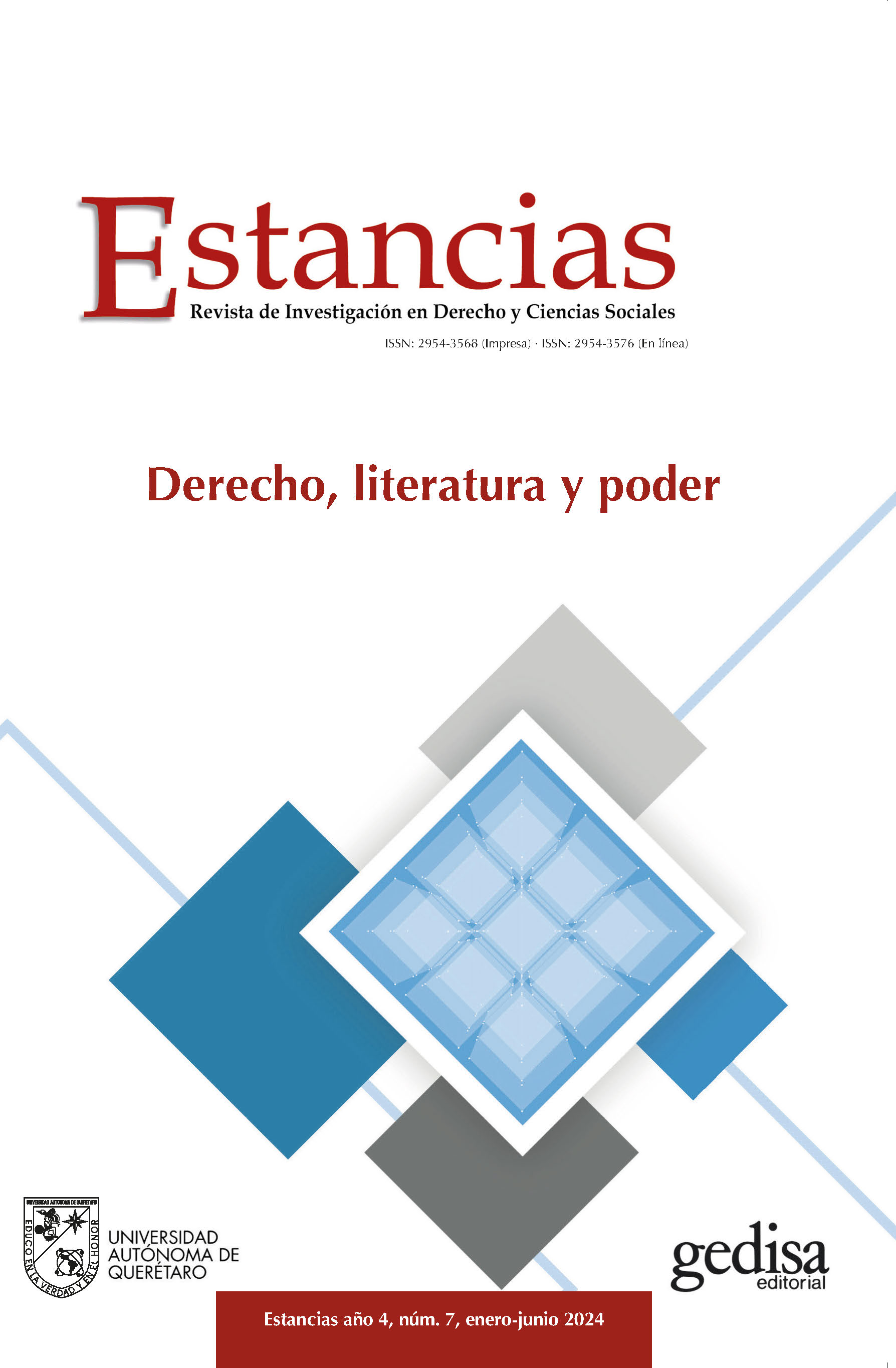Spaces of power and their boundaries with the legal dimension in The Lightning of Agust and Kill the Lion by Jorge Ibargüengoitia
Main Article Content
Abstract
The present article analyzes the novels The Lightning of Agust and Kill the Lion by the writer Jorge Ibargüengoitia with the objective of outlining the author’s vision of the spaces of power and their legal dimension, as well as their relationship with dictatorial phenomena on the Latin American continent within the historical-political reality in Mexico. The ironic humor used by Ibargüengoitia constitutes a criticism of powerful figures and national heroes, and he also warns of the difficulty of eliminating the figure of the dictator in Latin America. The analyzed narratives constitute a fertile field for the development of law and literature studies by noticing the fragility of the borders between law and power.
Article Details

This work is licensed under a Creative Commons Attribution-NonCommercial-ShareAlike 4.0 International License.
How to Cite
References
Amate Blanco, J. (1981). La novela del dictador en Hispanoamérica. Cuadernos Hispanoamericanos, (370), 85-102.
Calvo González, J. (ed.) (2016). De la ley ¿O será ficción? Buenos Aires: Marcial Pons.
Campesino, J. (2009). Elementos de lo cómico-serio en Maten al león de Jorge Ibargüengoitia. Acta poética, 30 (1), 239-269.
Domenella, A. R. (1989). Jorge Ibargüengoitia: la transgresión por la ironía. Ciudad de México: UAM-Iztapalapa.
Escalante, E. (1998). Las metáforas de la crítica. Ciudad de México: Joaquín Mortiz.
Fuentes, C. (1972). La nueva novela hispanoamericana. Ciudad de México: Joaquín Mortiz.
García Flores M. (1979). Cartas Marcadas. Ciudad de México: Porrúa.
Ibargüengoitia, J. (1989). Autopsias rápidas, Ciudad de México: Vuelta.
Ibargüengoitia, J. (1991). Los relámpagos de agosto. Ciudad de México: Joaquín Mortiz.
Ibargüengoitia, J. (2018). Maten al León. Ciudad de México: Joaquín Mortiz.
Leñero, V. (2010). Los pasos de Jorge Ibargüengoitia. Ciudad de México: Planeta.
Medina, R. D. (1996). La otra cara de la revolución: hacia una explicación retórica de la risa. México: Instituto de Investigaciones Filológicas UNAM.
Mendoza García, P. (2015). El olor de la guayaba. Conversaciones con Gabriel García Márquez. Ciudad de México: Diana.
Rama, A. (1976). Los dictadores latinoamericanos. Ciudad de México: FCE.
Rouquié, A. (1986). Dictadores militares y legitimidad en América Latina. Crítica y Utopía. Latinoamericana de Ciencias Sociales, (5), 1-9.
Ruiz Lagier, R. (2019). México ¿La dictadura perfecta? Amérique Latine Histoire & Mémoire. Les Cahiers ALHIM, 38, doi.org/10.4000/alhim.8256
Scorza, M. (s/a) (15 septiembre de 2023). Literatura: Primer territorio libre de América. (Documento web). Disponible en: https://www.nodo50.org/mariategui/literaturaprimerterritoriolibre.htm
Strausfeld, M. (2021). Mariposas amarillas y los señores dictadores. América Latina narra su historia. Madrid: Debate.
Vargas, J. (2000). Parodia y desactivación de la memoria oficial en Maten al León de Jorge Ibargüengoitia. Céfiro: Enlace hispano cultural y literario, (1), 42-49.
